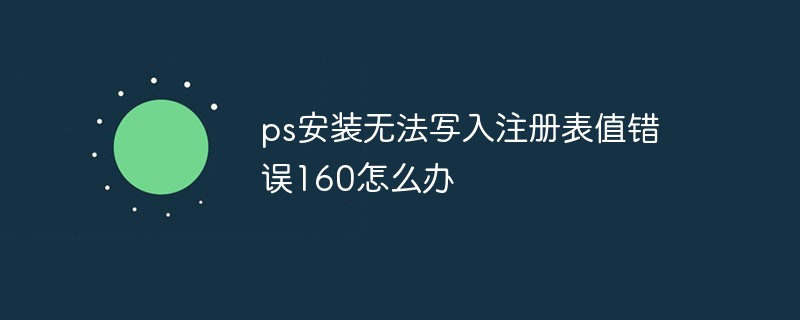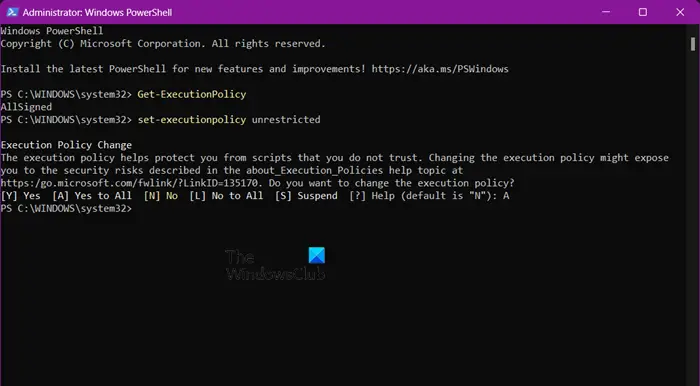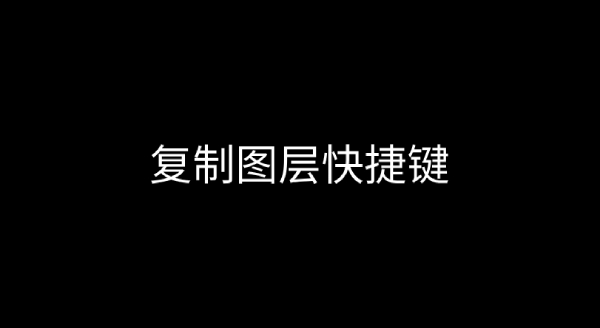The tone equalization function of photoshop is usually one of the more commonly used functions in the early stage of photo retouching. It plays a certain role in expanding the contrast of the image and enhancing the visual effect. In many textbooks or articles, this kind of processing is also called gray equalization, histogram equalization, etc. The principle of the algorithm is to count the histogram of the original image, and then re-project the histogram data through the cumulative distribution function, so that the distribution probability of each color level is adjusted in the same direction. The descriptions of this process in the codes I have seen on the Internet or in some textbooks are quite redundant. Either the code is cumbersome and inefficient, or it is too long-winded and very uncomfortable.
Before giving my code, there are some issues that need to be explained. For grayscale images, since there is only one channel, this problem is not obvious. For common 24-bit images, since there are three RGB channels, there is a question of whether each channel is equalized individually or the three channels jointly calculate the histogram, and then use the same The mapping table reflects RGB data. After my testing, in Photoshop, the latter is used.
for (Y = 0; Y <p></p><p><span style="font-size: 13px; font-family: 宋体;"> The algorithm part is just such a simple twenty-odd lines of code. The code is clear and the execution efficiency is very high. It is common in digital cameras. A photo of 4000*3000 can be processed within 100ms. </span></p><p><span style="font-size: 13px; font-family: 宋体;"> If an image is subjected to hue equalization once, then no pixels should be transformed if hue equalization is performed again. </span></p><p><span style="font-size: 13px; font-family: 宋体;"> Broadly speaking, hue equalization can be seen as a special case of histogram matching, that is, the matched histogram is distributed as a horizontal line. </span></p><p><span style="font-size: 13px; font-family: 宋体;"> The tone equalization in some books corrects each channel separately. It seems that the effect of this processing can easily lead to mismatch in the overall color of the image, such as the classic Lena picture: </span> </p><p><span style="font-size: 13px; font-family: 宋体;"> <img src="/static/imghwm/default1.png" data-src="https://img.php.cn/upload/article/000/000/013/8eb48ac53c4b686a55a10d84272a9b1f-0.jpg?x-oss-process=image/resize,p_40" class="lazy" alt="Quick implementation of PS tone equalization filter (C# source code)." style="max-width:90%" style="max-width:90%" title="Quick implementation of PS tone equalization filter (C# source code)."> <img src="/static/imghwm/default1.png" data-src="https://img.php.cn/upload/article/000/000/013/691628f7fd14aed82ce33125aefadd48-1.jpg?x-oss-process=image/resize,p_40" class="lazy" alt="Quick implementation of PS tone equalization filter (C# source code)." style="max-width:90%" style="max-width:90%" title="Quick implementation of PS tone equalization filter (C# source code)."> <img src="/static/imghwm/default1.png" data-src="https://img.php.cn/upload/article/000/000/013/691628f7fd14aed82ce33125aefadd48-2.jpg?x-oss-process=image/resize,p_40" class="lazy" alt="Quick implementation of PS tone equalization filter (C# source code)." style="max-width:90%" style="max-width:90%" title="Quick implementation of PS tone equalization filter (C# source code)."></span></p><p># The effect in Lang Rui’s textbook<span style="font-size: 13px; font-family: 宋体;"></span></p>More quick implementations of PS tone equalization filters (C# source code). For related articles, please pay attention to the PHP Chinese website! <p></p> <p></p>
 ps序列号cs5永久免费2020Jul 13, 2023 am 10:06 AM
ps序列号cs5永久免费2020Jul 13, 2023 am 10:06 AMps序列号cs5永久免费2020有:1、1330-1384-7388-4265-2355-8589(中文);2、1330-1409-7892-5799-0412-7680(中文);3、1330-1616-1993-8375-9492-6951(中文);4、1330-1971-2669-5043-0398-7801(中文)等。
 ps如何删除选中区域Aug 07, 2023 pm 01:46 PM
ps如何删除选中区域Aug 07, 2023 pm 01:46 PMps删除选中区域的步骤:1、打开想要编辑的图片;2、使用合适的工具创建选区;3、可以使用多种方法删除选区中的内容,使用“删除”键、使用“修复画笔工具”、使用“内容感知填充”、使用“图章工具”等;4、使用工具来修复任何明显的痕迹或缺陷,使图片看起来更自然;5、完成编辑后,点击菜单栏中的“文件”>“保存”来保存编辑结果。
 ps安装无法写入注册表值错误160怎么办Mar 22, 2023 pm 02:33 PM
ps安装无法写入注册表值错误160怎么办Mar 22, 2023 pm 02:33 PMps安装无法写入注册表值错误160的解决办法:1、查看电脑中是否有2345的软件,若有则卸载该软件;2、按“Win+R”输入“Regedit”打开系统注册表,然后找到“Photoshop.exe”并将Photoshop项删除即可。
 PS的界面字体太小怎么办Dec 01, 2022 am 11:31 AM
PS的界面字体太小怎么办Dec 01, 2022 am 11:31 AMPS的界面字体太小的修改方法:1、打开ps,点击ps顶部菜单栏上的“编辑”按钮展开编辑菜单;2、在展开的编辑菜单中点击“首选项”按钮,然后点击“界面...”按钮;3、在界面设置中将用户界面字体大小设置为“大”,将UI缩放设置为“200%”并保存设置,然后将ps重启即可生效。
 如何使用PowerShell自动执行任务Feb 20, 2024 pm 01:51 PM
如何使用PowerShell自动执行任务Feb 20, 2024 pm 01:51 PM如果您是IT管理员或技术专家,您一定意识到自动化的重要性。尤其对于Windows用户来说,MicrosoftPowerShell是最佳的自动化工具之一。微软为满足您的自动化需求提供了各种工具,无需安装第三方应用程序。本指南将详细介绍如何利用PowerShell自动化执行任务。什么是PowerShell脚本?如果您有使用PowerShell的经验,您可能已经使用过命令来配置您的操作系统。脚本是.ps1文件中这些命令的集合。.ps1文件包含由PowerShell执行的脚本,例如基本的Get-Help
 无法使用PS快捷键进行填充Feb 19, 2024 am 09:18 AM
无法使用PS快捷键进行填充Feb 19, 2024 am 09:18 AM随着数字时代的发展,图像处理软件成为我们生活和工作中不可或缺的一部分。其中,Adobe公司开发的Photoshop(简称PS)是最著名的图像处理软件之一,其功能强大,操作灵活,深受用户的喜爱。然而,使用PS时,有些用户反映快捷键“填充”(Fill)无法正常使用的问题,给用户的使用体验带来了困扰。快捷键是软件中提供的一种快速操作的方式,避免繁琐的鼠标点击操作,
 ps曲线快捷键是什么Aug 22, 2023 am 10:44 AM
ps曲线快捷键是什么Aug 22, 2023 am 10:44 AMps曲线快捷键是Ctrl+M,其他曲线快捷键:1、转换为点控制曲线,Alt+Shift+Ctrl+T;2、自动对齐曲线,Alt+Shift+Ctrl+O;3、恢复默认曲线,Ctrl+Alt+Shift+R;4、复制曲线,Ctrl+Alt+Shift+C;5、粘贴曲线,Ctrl+Alt+Shift+V;6、调整曲线斜率,Shift+上下箭头;7、调整曲线亮度,Shift+左右箭头
 PS复制图层快捷键Feb 23, 2024 pm 02:34 PM
PS复制图层快捷键Feb 23, 2024 pm 02:34 PM在PS复制图层快捷键中,我们可以知道使用PS的时候如果想要进行复制图层的操作,可以使用到快捷键【Ctrl+J】进行快速复制。这篇复制图层快捷键的介绍就能够告诉大家具体的操作方法,下面就是详细的内容,赶紧看看吧。PS复制图层快捷键答:【Ctrl+J】具体方法:1、在ps中打开图像,选中需要复制的图层。2、键盘同时按下【Ctrl+J】,即可完成对图层的复制。其他复制方式:1、打开图像后,按住图层,向下放【新建图层】图标移动。2、移动到该图标上后,松手。3、即可完成图层复制。


Hot AI Tools

Undresser.AI Undress
AI-powered app for creating realistic nude photos

AI Clothes Remover
Online AI tool for removing clothes from photos.

Undress AI Tool
Undress images for free

Clothoff.io
AI clothes remover

AI Hentai Generator
Generate AI Hentai for free.

Hot Article

Hot Tools

ZendStudio 13.5.1 Mac
Powerful PHP integrated development environment

Safe Exam Browser
Safe Exam Browser is a secure browser environment for taking online exams securely. This software turns any computer into a secure workstation. It controls access to any utility and prevents students from using unauthorized resources.

DVWA
Damn Vulnerable Web App (DVWA) is a PHP/MySQL web application that is very vulnerable. Its main goals are to be an aid for security professionals to test their skills and tools in a legal environment, to help web developers better understand the process of securing web applications, and to help teachers/students teach/learn in a classroom environment Web application security. The goal of DVWA is to practice some of the most common web vulnerabilities through a simple and straightforward interface, with varying degrees of difficulty. Please note that this software

SublimeText3 English version
Recommended: Win version, supports code prompts!

VSCode Windows 64-bit Download
A free and powerful IDE editor launched by Microsoft






